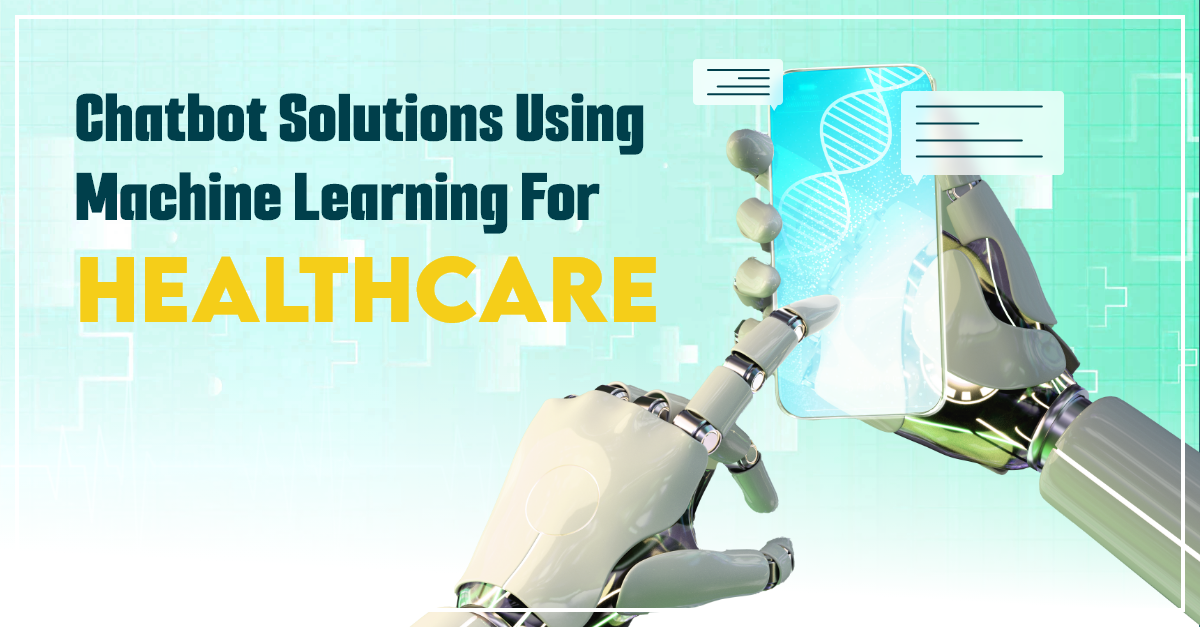Chatbots are programs that employ machine learning algorithms, such as natural language processing (NLP), to stimulate and engage in conversations with users to provide real-time patient assistance. Chatbots are already popular in retail, news, social media, banking, and customer service. Many individuals use chatbots on their cell phones without even realizing it. The healthcare sector, including medical assistants, is also leveraging AI-enabled solutions including those developed through innovative software product engineering, to streamline patient care and reduce unnecessary expenses. When patients engage in conversations with seemingly human medical representatives, they are interacting with intelligent conversational computers or healthcare chatbots.
Patients prefer chatting with actual doctors and artificial intelligence helps chatbots appear more human. In reality, some chatbots, equipped with powerful self-learning algorithms, can engage in profound, human-like discussions. Do AI-powered medical chatbots induce substantial paradigm shifts in healthcare? Absolutely. Northwell Health, an AI firm building chatbots to help patients manage cancer care, has announced that more than 96 percent of patients who used its post-discharge chatbots found it extremely helpful, exhibiting improved client engagement.
In the ongoing evolution of patient care, machine learning applications are playing a transformative role. As chatbots continue to develop, they promise not only to enhance care delivery but also to reduce healthcare costs and improve overall patient care outcomes.
Benefits of Chatbots in Healthcare
Healthcare stakeholders share the benefits of hybrid chatbots – and they are enormous. Chatbots are expected to save businesses up to 2.5 billion hours of work by 2024, according to experts. By connecting patients with the right healthcare providers and by helping them understand their conditions and treatments even without visiting a doctor, chatbots are gradually reducing hospital wait times, consultation times, unnecessary treatments, and hospital readmissions.
- Benefits for Healthcare Professionals: With the enhancement of treatment compliance and symptom awareness, medical chatbots emerge as invaluable tools for reducing the workload of healthcare professionals. This reduction spans hospital visits, unnecessary treatments, procedures, as well as hospital admissions and readmissions.
- Benefits for Patients: Patients experience a transformative shift in their healthcare experience. They don’t have to commute to the doctor’s office as much, and they don’t have to spend as much money on unnecessary tests and treatments. The doctor is just a click away empowering patients with convenience and accessibility.
Furthermore, hospitals and clinics leverage medical chatbots for proactive patient management even before entering the consultation room. An automated response to the patients’ symptoms gathers relevant information for the doctor based on the bot’s questions. As a result, these patient histories are sent via a messaging interface to the doctor, who triages the case and decides which patients require immediate attention and which patients need brief consultations. While acknowledging that chatbots cannot replace the expertise of doctors or take over patient care, this integration represents a harmonious blend, enhancing patient care delivery. The result is a simplified and expedited care process without compromising quality.
Use Cases of Chatbots in Healthcare
Developing a chatbot that engages and solves users’ problems requires determining what type of chatbot would most effectively accomplish these objectives. To design the right chatbot, we must consider the user’s intent and the best kind of help they need. Healthcare chatbots can be used for three primary purposes: informative, conversational, and prescriptive. Different chatbots provide different solutions, as well as different conversational styles and depths of communication.
- Informative Chatbots: Informative chatbots often provide helpful information to users through pop-ups, notifications, and the latest news. These bots are designed to provide automated details and customer support, offering users timely and relevant information. Their role extends beyond mere dissemination, actively contributing to a seamless user experience.
- Conversational Chatbots: Conversational chatbots are designed as contextual tools that respond based on the user’s intent. However, the landscape of conversational chatbots is diverse, encompassing various levels of maturity. Not all conversational chatbots offer the same depth of interaction. Some are adept at providing simple responses, while others excel at engaging users in more intricate and nuanced conversations. The versatility of conversational chatbots makes them adaptable to a wide range of user interactions.
- Prescriptive Chatbots: Prescriptive chatbots, while maintaining a conversational nature, are specifically designed to provide treatment solutions, answers, and instructions. These bots go beyond information delivery, actively participating in the decision-making process. By offering personalized guidance, they contribute significantly to the user’s healthcare journey, providing tailored solutions that align with individual needs.
In the ever-evolving landscape of healthcare chatbots, understanding these distinct use cases becomes imperative. Tailoring chatbot functionalities to align with user needs ensures a more targeted and effective integration into healthcare systems. As technology advances, the versatility of these chatbot applications continues to expand, promising a dynamic and responsive future for healthcare interactions.
Future of Chatbots in Healthcare
- Diagnostics: Chatbots are poised to play a pivotal role in diagnostics, offering efficient and accessible preliminary assessments. Their ability to gather relevant information from patients and provide instant insights can significantly expedite the diagnostic process. This not only aids healthcare professionals but also empowers patients with quicker responses to their health concerns.
- Patient Engagement Outside Medical Facilities: Beyond traditional medical settings, chatbots demonstrate immense potential in engaging patients outside of hospitals and clinics. Whether providing personalized health tips, medication reminders, or facilitating virtual consultations, chatbots contribute to a more connected and proactive approach to healthcare. This evolution is especially crucial in promoting preventive care and fostering a continuous relationship between patients and healthcare providers.
- Mental Health Support: In the realm of mental health, chatbots offer a discreet and accessible avenue for support. Providing timely information, coping strategies, and even acting as virtual companions, these chatbots can be valuable allies in the mental health journey. Their non-intrusive nature can encourage individuals to seek assistance and destigmatize discussions around mental well-being.
The healthcare chatbot market research underscores a promising future for chatbots within the healthcare industry, signaling continued growth and innovation. However, developing effective healthcare chatbots poses a challenge for those unfamiliar with the field. In this scenario, Venture7 emerges as a beacon, providing a streamlined and efficient avenue for constructing not only aesthetically pleasing but also HIPAA-compliant medical chatbots catering to the rising demand for innovative healthcare apps.





